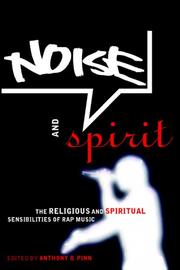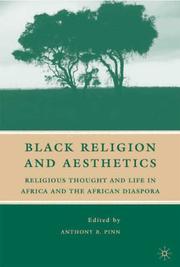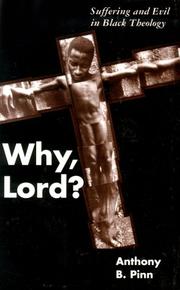| Listing 1 - 10 of 44 | << page >> |
Sort by
|
Book
ISBN: 1634311221 163431123X 1634311248 Year: 2017 Publisher: Pitchstone Publishing
Abstract | Keywords | Export | Availability | Bookmark
 Loading...
Loading...Choose an application
- Reference Manager
- EndNote
- RefWorks (Direct export to RefWorks)
Book
ISBN: 331931713X 3319317148 Year: 2016 Publisher: Cham : Springer International Publishing : Imprint: Palgrave Macmillan,
Abstract | Keywords | Export | Availability | Bookmark
 Loading...
Loading...Choose an application
- Reference Manager
- EndNote
- RefWorks (Direct export to RefWorks)
This book interrogates the ways in which new technological advances impact the thought and practices of humanism. Chapters investigate the social, political, and cultural implications of the creation and use of advanced forms of technology, examining both defining benefits and potential dangers. Contributors also discuss technology’s relationship to and impact on the shifting definitions we hold for humankind. International and multi-disciplinary in nature and scope, the volume presents an exploration of humanism and technology that is both racially diverse and gender sensitive. With great depth and self-awareness, contributors offer suggestions for how humanists and humanist organizations might think about and relate to technology in a rapidly changing world. More broadly, the book offers a critical humanistic interrogation of the concept of “progress” especially as it relates to technological advancement. .
Philosophy. --- Communication. --- Philosophy of Technology. --- Media and Communication. --- Humanism. --- Philosophy --- Classical education --- Classical philology --- Philosophical anthropology --- Renaissance --- Communication, Primitive --- Mass communication --- Sociology --- Mental philosophy --- Humanities --- Technology—Philosophy.
Book
ISBN: 3319940996 3319940988 Year: 2018 Publisher: Cham : Springer International Publishing : Imprint: Palgrave Macmillan,
Abstract | Keywords | Export | Availability | Bookmark
 Loading...
Loading...Choose an application
- Reference Manager
- EndNote
- RefWorks (Direct export to RefWorks)
This book explores the implication of diversity for humanism. Through the insights of academics and activists, it highlights both the successes and failures related to diversity marking humanism in the US and internationally. It offers a timely depiction of how humanism in general as well as how particular humanist communities have wrestled with the nature of our changing world, and the issues that surface in relationship to markers of difference.
Humanism. --- Philosophy --- Classical education --- Classical philology --- Philosophical anthropology --- Renaissance --- Secularism. --- Social history. --- Social History. --- Descriptive sociology --- Social conditions --- Social history --- History --- Sociology --- Ethics --- Irreligion --- Utilitarianism --- Atheism --- Postsecularism --- Secularization (Theology)

ISBN: 0814768598 9780814768594 0814766978 0814766994 9780814766972 9780814766996 Year: 2003 Publisher: New York New York University Press
Abstract | Keywords | Export | Availability | Bookmark
 Loading...
Loading...Choose an application
- Reference Manager
- EndNote
- RefWorks (Direct export to RefWorks)
Rap music is often seen as a Black secular response to pressing issues of our time. Yet, like spirituals, the blues, and gospel music, rap has deep connections to African American religious traditions.Noise and Spirit explores the diverse religious dimensions of rap stemming from Islam (including the Nation of Islam and Five Percent Nation), Rastafarianism, and Humanism, as well as Christianity. The volume examines rap’s dialogue with religious traditions, from the ways in which Islamic rap music is used as a method of religious and political instruction to the uses of both the blues and Black women’s rap for considering the distinction between God and the Devil.The first section explores rap’s association with more easily recognizable religious traditions and communities such as Christianity and Islam. The next presents discussions of rap and important spiritual considerations, including on the topic of death. The final unit wrestles with ways to theologize about the relationship between the sacred and the profane in rap.
Rap (Music) --- Hip-hop music --- Rap songs --- Rappin' (Music) --- Rapping (Music) --- African Americans --- Monologues with music --- Popular music --- Trip hop (Music) --- Religious aspects.
Book
ISBN: 0814768512 0814767796 9780814767795 9780814768518 9780814767740 0814767745 9780814767757 0814767753 Year: 2010 Publisher: New York
Abstract | Keywords | Export | Availability | Bookmark
 Loading...
Loading...Choose an application
- Reference Manager
- EndNote
- RefWorks (Direct export to RefWorks)
Black theology tends to be a theology about no-body. Though one might assume that black and womanist theology have already given significant attention to the nature and meaning of black bodies as a theological issue, this inquiry has primarily taken the form of a focus on issues relating to liberation, treating the body in abstract terms rather than focusing on the experiencing of a material, fleshy reality. By focusing on the body as a physical entity and not just a metaphorical one, Pinn offers a new approach to theological thinking about race, gender, and sexuality.According to Pinn, the body is of profound theological importance. In this first text on black theology to take embodiment as its starting point and its goal, Pinn interrogates the traditional source materials for black theology, such as spirituals and slave narratives, seeking to link them to materials such as photography that highlight the theological importance of the body. Employing a multidisciplinary approach spanning from the sociology of the body and philosophy to anthropology and art history, Embodiment and the New Shape of Black Theological Thought pushes black theology to the next level.
Black theology. --- Theological anthropology --- Human body --- African American theology --- African Americans --- Blacks --- Theology, Doctrinal --- Man (Christian theology) --- Christianity. --- Religious aspects --- Religion --- Black people
Book
ISBN: 1315475456 131547543X 1315475448 9781315475448 9781908049636 1908049634 1138145157 1844656616 9781315475455 Publisher: Sheffield Taylor and Francis.
Abstract | Keywords | Export | Availability | Bookmark
 Loading...
Loading...Choose an application
- Reference Manager
- EndNote
- RefWorks (Direct export to RefWorks)
We live in a world of social, political, economic, and religious rupture. Ideologies polarise to fuel confrontation within communities, nations and regions of the world. At this point in the twenty-first century, humanism's focus on reason, ethics and justice offers the potential to rethink and re-engage in new ways. What Is Humanism, and Why Does It Matter? brings together leading humanist thinkers and activists to examine humanism and how it can work in the world. Humanism is often misunderstood. The movement includes both atheists and agnostics, who seek to make ethical sense of the world based on shared human values and a concern for human welfare, happiness and fulfillment. What Is Humanism, and Why Does It Matter? presents an overview and exploration of the meaning and nature of humanism, both as a philosophy and as a way of engaging with the challenges of the world.
Humanism. --- Philosophy --- Classical education --- Classical philology --- Philosophical anthropology --- Renaissance
Book
ISBN: 9780190921538 9780190921552 9780190921569 9780190921545 0190921560 0190921552 0190921544 Year: 2019 Publisher: New York : Oxford University Press,
Abstract | Keywords | Export | Availability | Bookmark
 Loading...
Loading...Choose an application
- Reference Manager
- EndNote
- RefWorks (Direct export to RefWorks)
The Oxford Handbook of Humanism aims to cover the history, the philosophical development, and the influence humanist thought and culture. As a system of thought that values human needs and experiences over supernatural concerns, humanism has gained greater attention amid the rapidly shifting demographics of religious communities, especially in Europe and North America. This outlook on the world has taken on global dimensions as well, with activists, artists, and thinkers forming a humanistic response not only to traditional religion, but to the pressing social and political issues of the 21st century. To address these areas, the chapters in this volume discuss humanism as a global phenomenon-an approach that has often been neglected in more Western-focused works.
Political philosophy. Social philosophy --- General ethics --- Sociology of religion --- Humanism.
Book
ISBN: 1478013532 1478014466 1478021764 1478091762 9781478091769 9781478021766 Year: 2021 Publisher: Durham : Duke University Press,
Abstract | Keywords | Export | Availability | Bookmark
 Loading...
Loading...Choose an application
- Reference Manager
- EndNote
- RefWorks (Direct export to RefWorks)
"Drawing on literature along with the visual and performing arts, Anthony B. Pinn theorizes religion as a technology for interrogating human experiences understanding the ways in which things are always involved in processes of exchange and interplay."--
Philosophy of religion --- Religion as technology --- openness --- thing, art --- rebellion --- materiality --- Art and religion --- Religion and culture --- African American art --- Art and race. --- Performance art --- Social aspects. --- Social aspects --- Arts, Modern --- Happenings (Art) --- Performing arts --- Race and art --- Ethnopsychology --- Afro-American art --- Art, African American --- Negro art --- Ethnic art --- Art --- Arts in the church --- Religion and art --- Religion --- Religious aspects

ISBN: 0230605508 9780230605503 Year: 2009 Publisher: New York (N.Y.) : Palgrave Macmillan,
Abstract | Keywords | Export | Availability | Bookmark
 Loading...
Loading...Choose an application
- Reference Manager
- EndNote
- RefWorks (Direct export to RefWorks)
Aesthetics --- Aesthetics, African. --- African diaspora. --- Blacks --- Religious aspects. --- Religion. --- Africa

ISBN: 9780826412089 0826412084 Year: 1999 Publisher: New York (N.Y.): Continuum,
Abstract | Keywords | Export | Availability | Bookmark
 Loading...
Loading...Choose an application
- Reference Manager
- EndNote
- RefWorks (Direct export to RefWorks)
| Listing 1 - 10 of 44 | << page >> |
Sort by
|

 Search
Search Feedback
Feedback About UniCat
About UniCat  Help
Help News
News